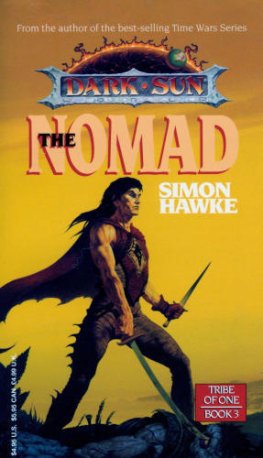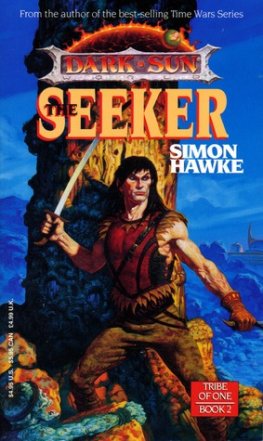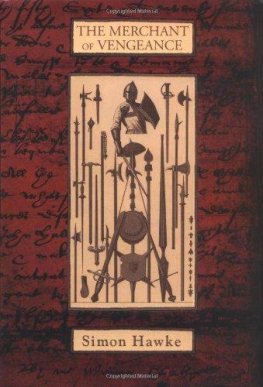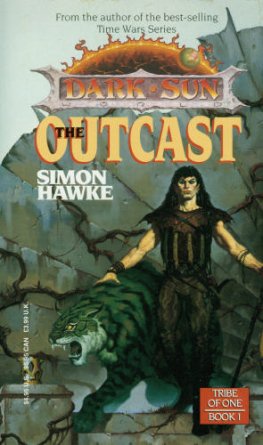Simon Hawke - The Zenda Vendetta
Here you can read online Simon Hawke - The Zenda Vendetta full text of the book (entire story) in english for free. Download pdf and epub, get meaning, cover and reviews about this ebook. genre: Science fiction. Description of the work, (preface) as well as reviews are available. Best literature library LitArk.com created for fans of good reading and offers a wide selection of genres:
Romance novel
Science fiction
Adventure
Detective
Science
History
Home and family
Prose
Art
Politics
Computer
Non-fiction
Religion
Business
Children
Humor
Choose a favorite category and find really read worthwhile books. Enjoy immersion in the world of imagination, feel the emotions of the characters or learn something new for yourself, make an fascinating discovery.

- Book:The Zenda Vendetta
- Author:
- Genre:
- Rating:3 / 5
- Favourites:Add to favourites
- Your mark:
- 60
- 1
- 2
- 3
- 4
- 5
The Zenda Vendetta: summary, description and annotation
We offer to read an annotation, description, summary or preface (depends on what the author of the book "The Zenda Vendetta" wrote himself). If you haven't found the necessary information about the book — write in the comments, we will try to find it.
The Zenda Vendetta — read online for free the complete book (whole text) full work
Below is the text of the book, divided by pages. System saving the place of the last page read, allows you to conveniently read the book "The Zenda Vendetta" online for free, without having to search again every time where you left off. Put a bookmark, and you can go to the page where you finished reading at any time.
Font size:
Interval:
Bookmark:
Simon Hawke
The Zenda Vendetta
PROLOGUE
It was a room where time did not exist. Whenever Moses Forrester entered it, he left the 27th century behind and stepped into the limbo of his memories. Here, in his private den, the world of 2619 did not intrude. Outside the door of his small sanctum were his quarters in the section of the TAC-HQ building housing bachelor officers on command staff. From the massive window in his living room that took up one whole wall, Forrester could look out over all of Pendleton Base spread out far below him. At night, the garish glow of the urban blight that was Los Angeles could be seen in the distance. Behind the door, however, there was just one small room with no windows out of which to gaze. There were other things to look at here, all of which called forth panoramic visions of their own.
The door slid aside into a recess as he approached it, the lock responding to his voice speaking the code phrase, old time not forgotten, and he took two steps inside, the door sliding shut behind him. With a somber expression, he gazed at the many incongruous items displayed about the room which, at first glance, gave it the aspect of a storage place for worthless junk. However, the like of this agglomeration could not be found in any museum.
One wall was floor-to-ceiling bookshelves. Arranged upon the shelves were priceless first editions, ancient tomes, yet all in absolutely mint condition as if they had just come off the presses. The rarity of the titles was matched only by their diversity. It was the library of a scholar with quite eclectic tastes, many titles autographed Honore de Balzac, Sigmund Freud, Fyodor Dostoevski, Mickey Spillane, Barbara Tuchman, Isaac Asimov.
Hanging upon one wall was a sword, a heavy weapon with an ornately jeweled hilt inlaid with solid gold. It had been taken from the scabbard of a dead knight named Rodrigo Diaz, better known to history as El Cid. Beneath this beautiful broadsword hung a far more plebian-looking weapon, an old and somewhat rusty rapier, a gift to Forrester from one of the officers under his command. It had been discarded by its owner when he had received a better one from George Villiers, the Duke of Buckingham. Major Lucas Priest had known how greatly Forrester would value a blade that had belonged to a Gascon swordsman named DArtagnan.
Next to the two swords hung a badly weathered powder horn, which had once been the property of an American frontiersman by the name of Daniel Boone. Above it was displayed a long flintlock rifle named Old Betsy. It had been found near the body of Colonel David Crockett at the Battle of the Alamo. Close by the rifle hung a wicked-looking knife that was only slightly smaller than a Roman short sword. There were many imitations of it throughout later years, but this was the original Bowie knife, rumored to have been forged from a piece of a star.
Displayed in a velvet-lined case was the black powder pistol that had slain Alexander Hamilton in a duel with Aaron Burr. Encased in a small frame upon the wall was a cloth mask once worn by a famous black-clad avenger in the days of Spanish California and, beside it, another pistol, a pearl-handled. 45, which had been stolen from the most famous tank commander of them all. On the small writing table, next to a framed letter written to Forrester (though the name by which the author of the letter addressed him was Murray), a small block of lucite stood about six inches high. Inside it was a misshapen piece of metal, about the size of a mans thumbnail. It was a jezail bullet which had been removed from the shoulder of an army surgeon attached to the Berkshires (66th Foot) on July 27, 1880. The letter was from the same surgeon, whose life Murray had saved at the Battle of Maiwand during the Second Afghan War. The return address was 221B Baker Street. These and other, less celebrated mementos comprised what was referred to by the soldiers under Forresters command as the old mans collection; to smuggle back an item that was deemed worthy of inclusion was considered a great coup. It was all very much against regulations, but the soldiers of the First Division were given the greater leeway in such things, and rank had its privileges. In the case of Colonel Forrester, those privileges were considerable.
He was the only colonel in the service whom a general would salute. Those who did not know him by sight needed only to glance at his golden division insignia to recognize him. There was only one full bird colonel who wore the number one bisected by the symbol of infinity and that was Moses Forrester, commander of the First Division of the U.S. Army Temporal Corps, leader of the Time Commandos. He owned a chestful of decorations, though he never wore them, preferring the clean and uncluttered uniform of crisp black base fatigues. This rather austere look was more than compensated for by the appearance of the man himself. Tall, barrel-chested, broad-shouldered and completely bald, Forrester looked like nothing less than a tank made of flesh and blood. The only evidence of his great age were his wrinkled, craggy features. His face looked as though it had been sewn from well-worn leather. His hands were huge and gnarled, but the power in his arms was considerable. He could curl an eighty-pound dumbbell easily with just one hand. Everything about him, from his erect carriage to the direct gaze of his deep-set eyes, to the sharp crease in his immaculate fatigues bespoke a soldier. In the Temporal Army Corps, Forrester was the most widely respected soldier of them all.
The men and women under his command performed the most unenviable job a soldier could be called upon to do. They were the guardians of history, assigned exclusively to deal with temporal disruptions created by the actions of the Time Wars. Forrester was proud of his command and of the work they did. His one great regret was that he no longer accompanied them on their hazardous missions to Minus Time. His days in the field were now over. After a lifetime spent fighting on the battlegrounds of history, he was now firmly stuck in time, in the 27th century, on a large military base in Southern California. He lived in luxurious quarters located in the heights of the Temporal Army Command Headquarters; he ate and drank nothing but the best; he had orderlies to see to his needs and he lived the full if regimented life of an officer and a gentleman. Yet it was not enough, far from it.
He longed for the old days. During the quiet times, a great wistfulness would sometimes come upon him. At such times, he would enter his den, light up a pipe, pour himself a glass of wine, and toast his memories. He would gaze at the collected artifacts and books, select one item or another, run his fingers over it, and smile as the memories flooded back to him.
Here was the pith helmet he had worn when he served under Chinese Gordon at Khartoum. Here was the iron cross which Otto Skorzeny himself had pinned on him for saving the German commando leaders life during the raid to free Il Duce. Here was the cutlass he had carried when he sailed under the freebooter, Sir Henry Morgan. And here was the most significant memento of them all a lock of raven black hair kept in a tiny enameled box.
It was the one item not prominently displayed. He kept it in the left-hand drawer of the ancient rosewood writing table at which Lord Byron penned his poems. He never took it out. Now, for the first time in many years, he took out the tiny box, holding it in his hand as if it were a sacred object. His eyes softened as he thought of the woman it betokened. She was long dead, her dust stirred by the passage of some eight hundred years. It had been one of only two times in an incredibly long life, even by the life-extended standards of the 27th century, that he had ever been in love. Both loves had been ill-fated. Both were part of a past he had tried hard to forget, never with complete success. Those memories were very fresh now. Painfully so. He held the tiny box in one hand and a letter in the other. Each represented one of those two loves. One woman was long dead; the other, whom he had thought dead, was still very much alive. She had reached out across the centuries to unite them all and twist the knife.
Font size:
Interval:
Bookmark:
Similar books «The Zenda Vendetta»
Look at similar books to The Zenda Vendetta. We have selected literature similar in name and meaning in the hope of providing readers with more options to find new, interesting, not yet read works.
Discussion, reviews of the book The Zenda Vendetta and just readers' own opinions. Leave your comments, write what you think about the work, its meaning or the main characters. Specify what exactly you liked and what you didn't like, and why you think so.




